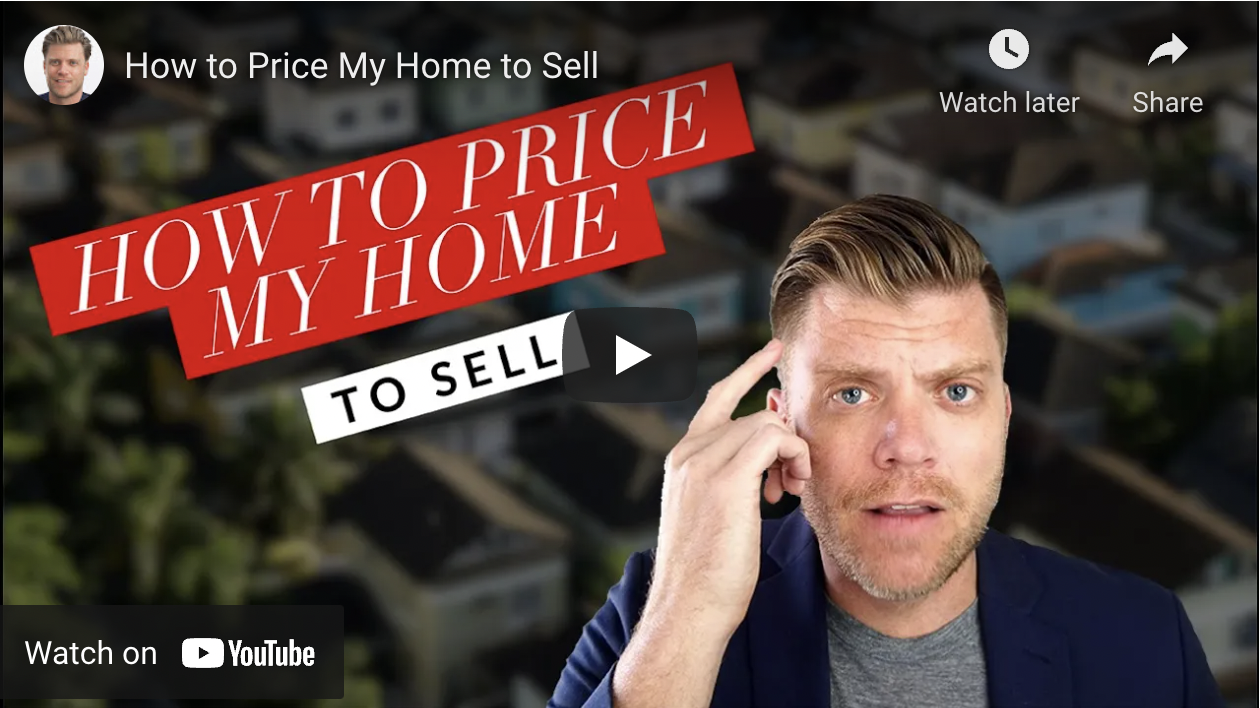How To Price My Home to Sell
Determining Your Asking Price
Pricing a home for sale is as much art as science, but there are a few things that never change.
1) Fair market value attracts buyers, overpricing never does.
2) The first two weeks of marketing are crucial.
3) Intelligent pricing isn't about getting the most for your home - it's about getting your home sold quickly at fair market value.
So What is Fair Market Value?
Fair market value is what a willing buyer and a willing seller agree by contract is a fair price for the home. Values can be impacted by a wide range of reasons, but the 2 biggest are location and condition. Generally, fair market value can be estimated by considering the comparables - other similar homes that are close in proximity, size, and appearance to your home that have sold or are currently for sale in the same area.
Here are 3 things to consider when determining your asking price:
1) Affordability
First and foremost, buyers look at affordability. Most shop by price range and look for the best value in that range. Most likely, they know exactly how much they have to spend because they’ve been pre-approved by a lender. Whether it's with their agents or online, buyers shop in price ranges - typically in $25,000 increments. With that in mind, it's far better to price your home at $399,995 or $424,900 than at $405,000. Your realtor’s job is to make sure the buyer who is qualified to buy your home, will actually see it.
2) Market Conditions
When using comparables to determine your asking price it's also important to strongly consider current market conditions. Next to pricing, buyers look at all available inventory and compare their home to others currently on the market. When home inventory is high, buyers have more room to negotiate terms. When fewer homes are available for sale, buyers are more likely to meet your terms. Buyers'’ choices are then narrowed onto a short list, based on what they perceive to be the best value - the best homes in the best condition, and in the best neighborhoods, they can afford.
As markets rise and fall, buyers can only negotiate based on current market values. This means a buyer who wants a home in a particular neighborhood may choose one that's in less than perfect condition if the price is right. Other buyers may opt to compromise location in order to get a larger home or one in better condition. No matter the situation, buyers always choose the home that offers the best price, condition, and location for the money.
Just as you want the most money possible for your home, your buyer wants to pay the least amount of money. The buyer isn't interested in how much you paid for the home, what you paid for upgrades, or how much money you need to make from the sale. They are only interested in whether or not they want those features and whether or not the home is worth the price you’re asking.
3) Timing
When it comes to pricing, timing is everything. Your best chance of selling your home is in the first two weeks of marketing. Your home is fresh and exciting to buyers and to their agents. Sellers often view their homes as special, which tempts them to put a higher price on it, believing they can always come down later, but that's a serious mistake. Overpricing prevents the very buyers who are eligible to buy the home from ever seeing it.
If you don't get many showings or offers in the first two weeks, you've probably overpriced your home, and it's not comparing well to the competition. By then you've lost precious time and perhaps allowed a stigma to cloud your home's value.
Since you can't change the location, you'll have to either improve the home's condition or lower the price to make it more competitive.
Intelligent pricing isn't about getting the most for your home - it's about getting your home sold quickly at fair market value.
When determining your asking price, try and think as a buyer would. Ask yourself the question, “Based on how buyers typically choose homes, will they feel your home is really worth the asking price?
